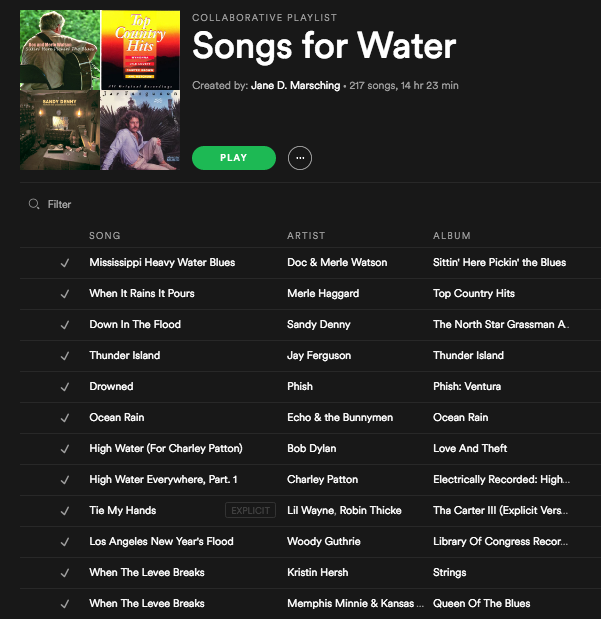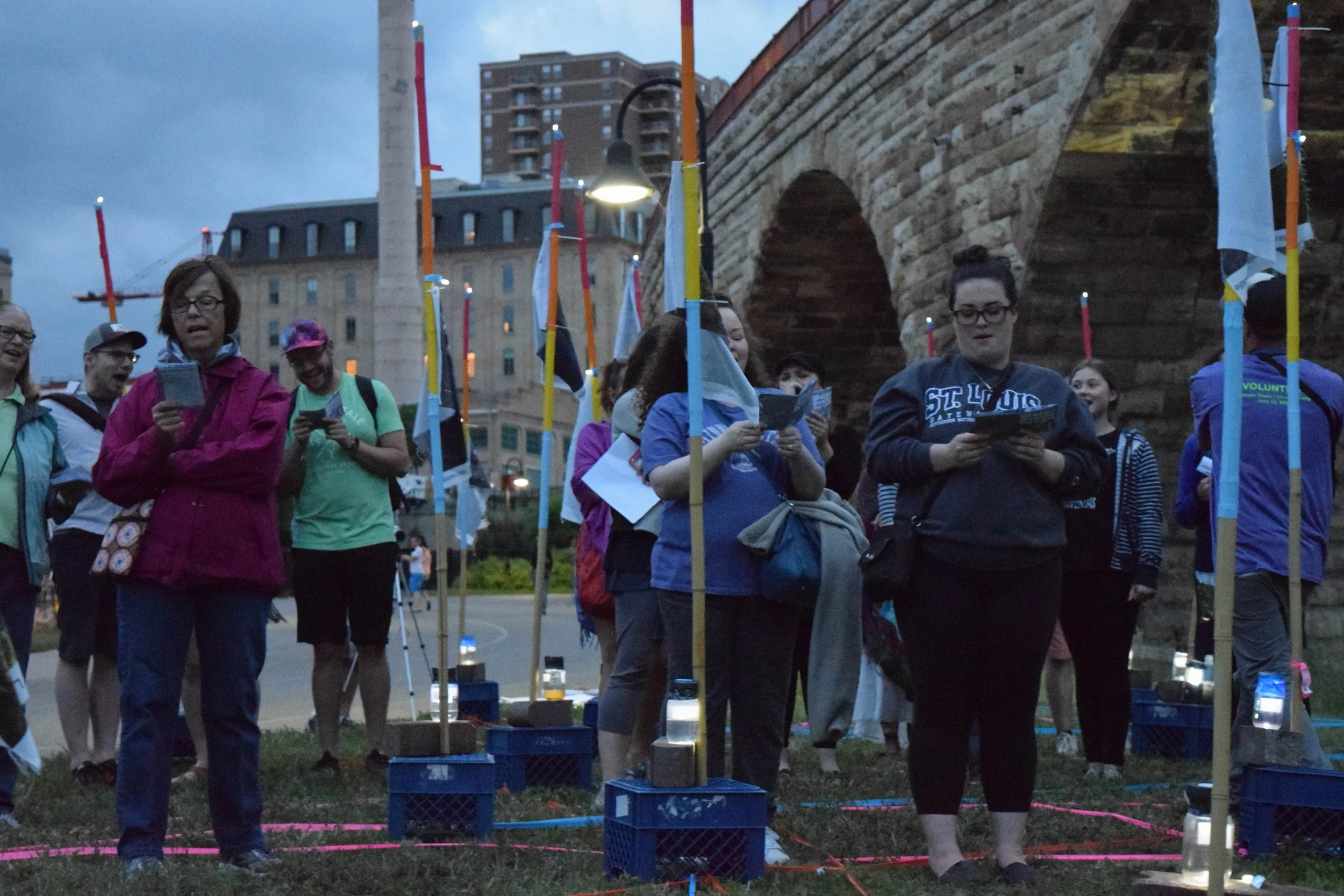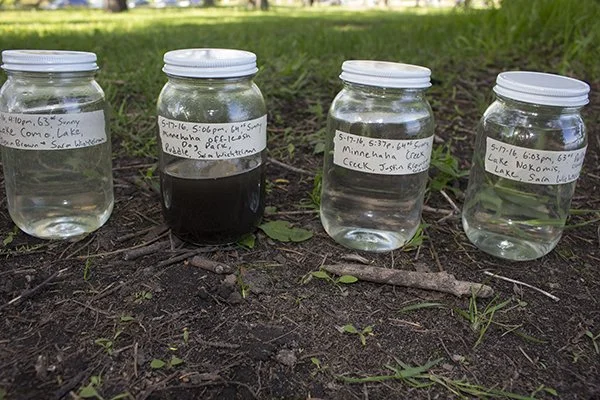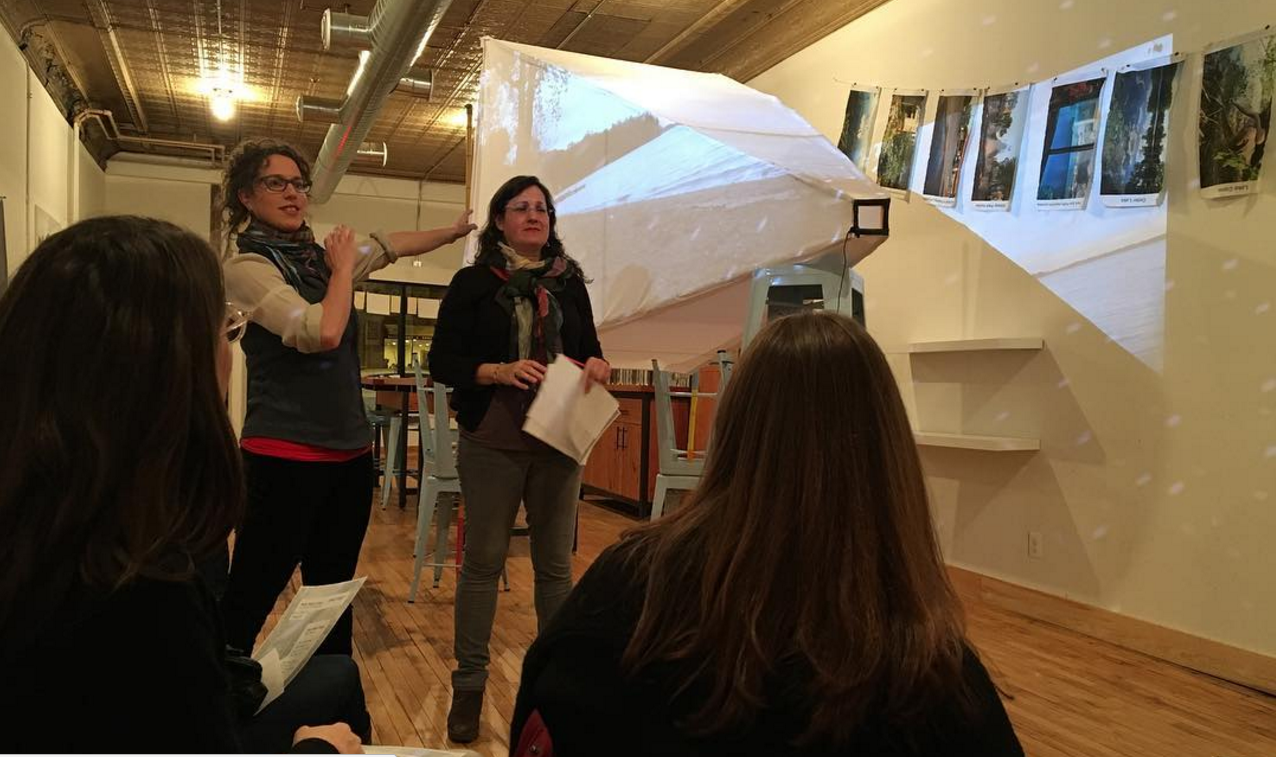Water Quality Chorus
The Water Quality Chorus is an art-science community engagement project that transforms water quality sampling data into musical interpretation for songs sung in a public sing-along event at Northern Spark Climate Chaos/Climate Rising on June 10th, 2017, in Minneapolis and St. Paul, Minnesota. Through this project we seek to unite the community-building quality of sing-alongs with American storytelling traditions as a way to turn water quality data — which can seem to some to be abstract and opaque — into a sensory and emotional experience that communicates the urgent challenges facing our riparian habitats.
Project goals:
Educate the public about water quality issues in Minnesota watersheds and challenges they face through a unique experience of singing and storytelling
Recognize the efforts of citizen scientists and give them a new platform for public communication of their experiences and motivations
Educate the public on ways of being involved in water conservation as citizen scientists, residents, and stewards and inhabitants of their local riparian habitats.
This year-long project in 2016-17 involves the following:
Water Support Groups: a series of storytelling events and recording sessions featuring stakeholders, policymakers, residents, and activists working on statewide water quality issues;
a Spotify playlist: Songs for Water
Public choral performance and sing-along accompanied by choreography, and a large-scale printed Water Quality Songbook
An installation of water samples from throughout Minneapolis/St. Paul and flags with images from the sampled sites
Project partners include:
Water Quality Sing-a-long
Plotform (Jane D. Marsching + Andi Sutton)
with Sara Wichterman and Richard Sutton
2016
A project of Northern Spark 2016#nspk16 #nourish
June 11 9pm-6am, singing at 4:45am, Mill Ruins Park
On June 11 on a bit of parkland at the edge of the Mississippi River in Minneapolis, Plotform installed 36 flags, water bottles, led lights, and data scales. The piece focused on water bodies within the Twin Cities that are often overlooked (puddles, tap water, fountain spray, etc.). We gathered samples and test 24 sites, identifying chemical and bacterial levels to see what affects human and non-human species health. We photographed the sites and created flags with the images that were light throughout the nite with small led lights and hung on a colored scale according the quality of the water. Water from the sites contained in ordinary glass jars could be examined for clarity and color. Throughout the night, visitors looked at the sites, water, and data, and shared stories of their own experiences, fears, and questions about water quality in the city.
At dawn we sang. Using songs from a variety of traditions (folk, gospel, rock, protest) we changed some of the words, changed pitch and intonation, and directed singers in simple movements to experiment with ways to sing water quality data. We asked: can a song scale tell a story about the challenges our watershed faces now and into the future? Can joining our voices together in song create an embodied engagement with this essential element of our individual, community, and ecosystem health?
Images by Kyra Nygard and Sara Wichterman








